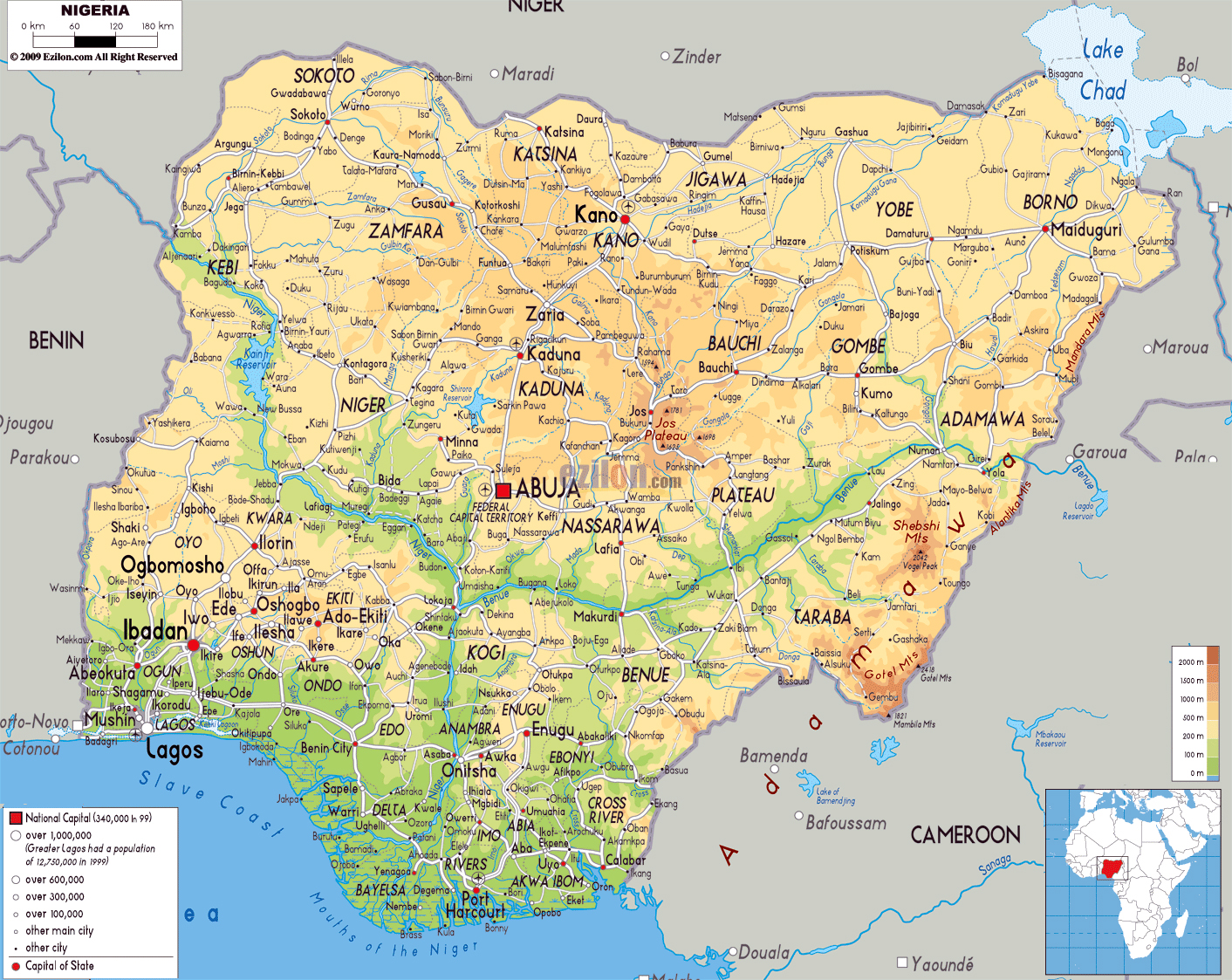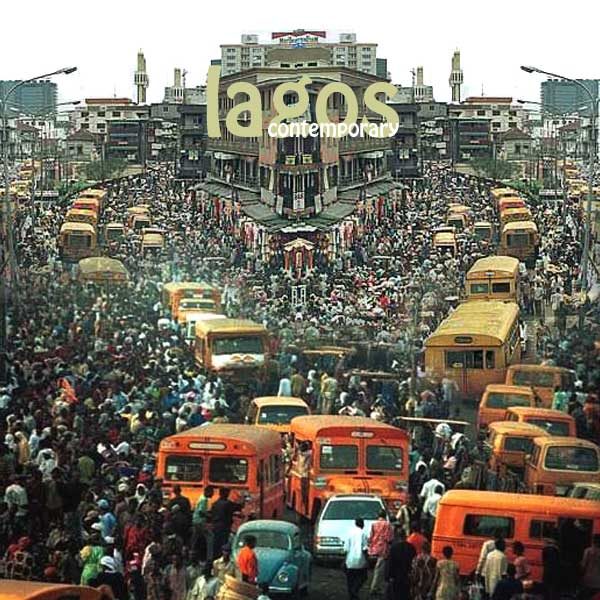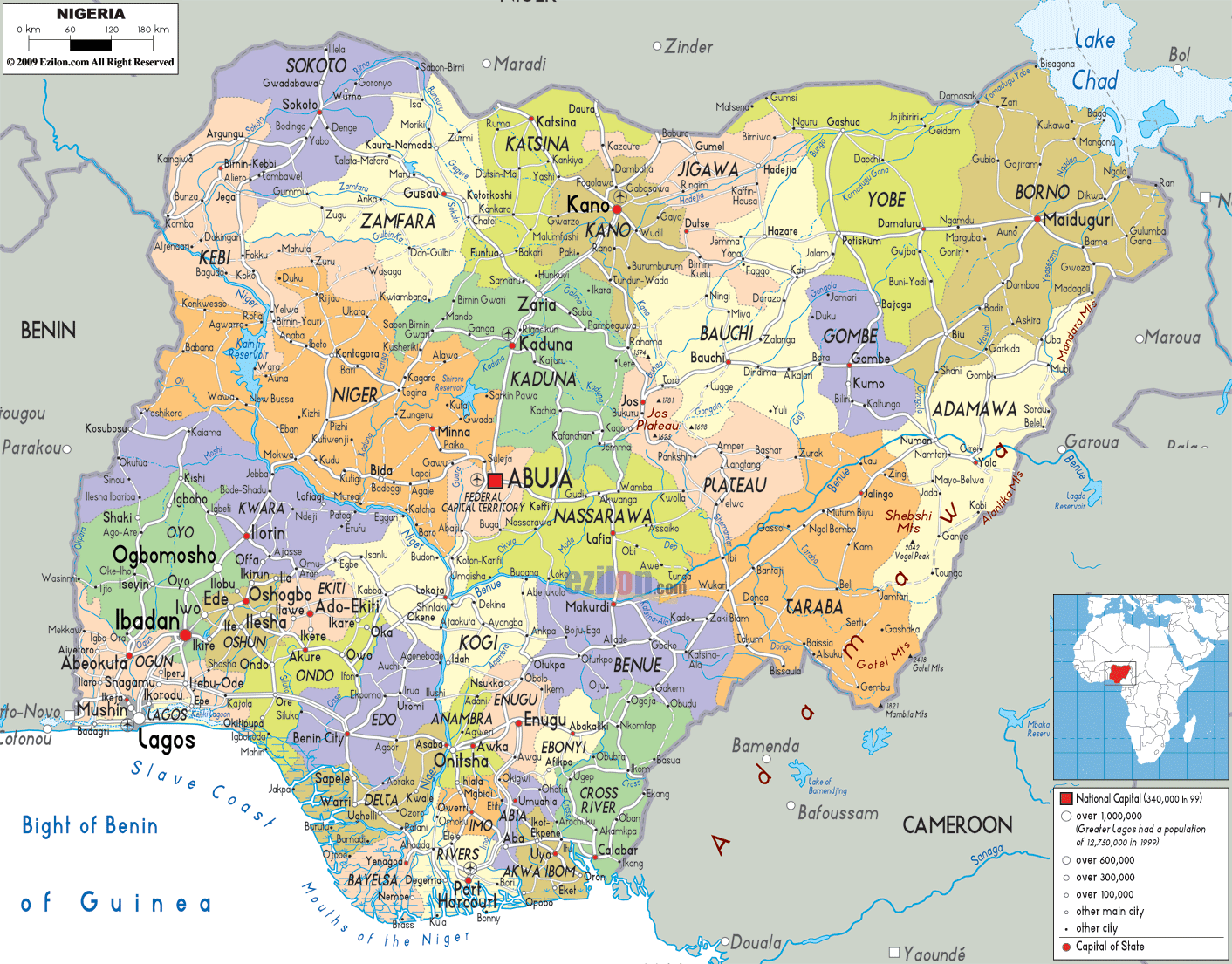Nigeria is home to some of the largest and most vibrant cities in Africa, each offering a unique blend of culture, history, and modernity. With a population exceeding 200 million, Nigeria boasts urban centers that are not only significant in size but also in economic and cultural influence. In this article, we will delve into the characteristics, significance, and attractions of large Nigerian cities, focusing on their role in the country's development and their appeal to both locals and tourists.
As we explore the large Nigerian cities, we will highlight key aspects such as demographics, infrastructure, and cultural heritage. This comprehensive guide aims to provide valuable insights for anyone interested in understanding the dynamics of urban life in Nigeria. Whether you are planning to visit, relocate, or simply want to learn more about these bustling metropolises, you will find the information presented here both informative and engaging.
From the bustling streets of Lagos to the historical landmarks of Kano, each city has a story to tell. Our exploration will not only cover the popular destinations but also the hidden gems that make these cities truly remarkable. Join us as we embark on this journey through Nigeria's large cities, uncovering what makes them stand out on the African continent.
Table of Contents
- 1. Overview of Nigeria's Urban Landscape
- 2. Lagos: The Heartbeat of Nigeria
- 3. Abuja: The Capital City
- 4. Kano: A Cultural Heritage City
- 5. Port Harcourt: The Oil City
- 6. Ibadan: The City of Brown Roofs
- 7. Benin City: A Historical Perspective
- 8. Challenges Facing Large Nigerian Cities
- 9. Conclusion
1. Overview of Nigeria's Urban Landscape
Nigeria's urban landscape is characterized by rapid urbanization, with cities expanding at an unprecedented rate. The country's large cities serve as economic powerhouses, cultural hubs, and centers for education and innovation. According to the United Nations, Nigeria is projected to become one of the most urbanized countries by 2050, with the majority of its population residing in urban areas.
Factors contributing to this urban growth include internal migration from rural areas in search of better opportunities, as well as natural population growth. As a result, large cities in Nigeria face both opportunities and challenges, affecting their infrastructure, housing, and public services.
2. Lagos: The Heartbeat of Nigeria
Lagos is Nigeria's largest city and one of the fastest-growing cities in the world. With a population exceeding 14 million, it is a melting pot of cultures, languages, and traditions. As the economic hub of Nigeria, Lagos contributes significantly to the nation's GDP, driven by industries such as finance, technology, entertainment, and trade.
- Jfk Jr Saluting A Symbol Of Legacy And Hope
- Judge Judy A Deep Dive Into The Life And Legacy Of Americas Favorite Judge
2.1 Key Attractions in Lagos
- Tarkwa Bay Beach: A popular destination for relaxation and water sports.
- The National Museum: Home to Nigeria's rich cultural heritage and artifacts.
- Victoria Island: A bustling business district with luxury hotels and restaurants.
- Lekki Conservation Centre: A nature reserve that promotes environmental conservation.
2.2 Infrastructure and Transportation
Lagos boasts an extensive transportation network, including roads, railways, and waterways. The Lagos State Government has invested in various infrastructure projects to alleviate traffic congestion and improve connectivity. However, challenges remain, particularly in terms of public transportation and waste management.
3. Abuja: The Capital City
Abuja, the capital city of Nigeria, was established in 1991 as part of a political strategy to promote national unity and development. With a population of over 3 million, Abuja is known for its modern architecture, green spaces, and well-planned layout.
3.1 Government and Diplomacy
Abuja serves as the political center of Nigeria, housing important government institutions, foreign embassies, and international organizations. The city is designed to accommodate a diverse population and promote diplomatic relations.
3.2 Attractions in Abuja
- National Mosque: An architectural marvel and one of the largest mosques in Africa.
- National Cathedral: A symbol of religious harmony and diversity.
- Aso Rock: A prominent landmark and a site of political significance.
4. Kano: A Cultural Heritage City
Kano is one of the oldest cities in Nigeria, with a rich history dating back over a thousand years. As a major commercial center in northern Nigeria, Kano is known for its vibrant markets, traditional crafts, and cultural festivals.
4.1 Historical Significance
The city is home to several historical sites, including the ancient Kano City Walls and the Gidan Makama Museum, which showcases the history and culture of the Kanawa people.
4.2 Economy and Trade
Kano's economy is driven by trade, agriculture, and textiles. The city is famous for its dyeing and weaving industries, attracting visitors looking for unique handmade products.
5. Port Harcourt: The Oil City
Port Harcourt, located in the Niger Delta region, is known as the "Oil City" due to its status as a hub for the petroleum industry. With a population of over 1.5 million, the city plays a crucial role in Nigeria's economy.
5.1 Economic Impact of Oil
The oil industry in Port Harcourt has attracted both local and international investments, leading to economic growth and job creation. However, this has also resulted in environmental challenges and social issues.
5.2 Cultural Diversity
Port Harcourt is home to a diverse population, with various ethnic groups contributing to the city's cultural richness. The city hosts several cultural events and festivals, celebrating its heritage.
6. Ibadan: The City of Brown Roofs
Ibadan, often referred to as the "City of Brown Roofs" due to the distinctive rooftops of its buildings, is one of the largest cities in Nigeria. With a population of over 3 million, Ibadan is known for its historical significance and educational institutions.
6.1 Educational Hub
The city is home to the University of Ibadan, Nigeria's first university, and several other higher education institutions, making it a center for academic excellence.
6.2 Cultural Heritage
Ibadan boasts several historical landmarks, including the Cocoa House, the first skyscraper in West Africa, and the University of Ibadan Zoo, attracting visitors interested in history and culture.
7. Benin City: A Historical Perspective
Benin City, the capital of Edo State, is known for its rich history and cultural heritage. The city is famous for its ancient kingdoms, art, and traditional festivals.
7.1 The Benin Kingdom
Benin City was once the center of the Benin Kingdom, known for its advanced governance and artistry. The city is home to the Benin Bronzes, a collection of brass plaques and sculptures that depict the kingdom's history.
7.2 Festivals and Events
The city hosts several cultural festivals, including the Edo Festival and the Igue Festival, showcasing the rich traditions of the Edo people.
8. Challenges Facing Large Nigerian Cities
Despite their vibrancy and growth, large Nigerian cities face several challenges, including:
- Urbanization: Rapid urban growth can strain infrastructure and public services.
- Traffic Congestion: Poor transportation systems lead to significant traffic issues.
- Environmental Concerns: Pollution and waste management are pressing issues in many urban areas.
- Housing Shortages: Rapid population growth has resulted in a housing crisis in several cities.
9. Conclusion
In conclusion, large Nigerian cities are dynamic and multifaceted, offering a glimpse into the country's culture, history, and economic potential. From the bustling streets of Lagos to the historical richness of Kano and Benin City, each city has its own unique story to tell. As Nigeria continues to urbanize, addressing the challenges faced by these cities will be crucial for sustainable development.
We invite you to share your thoughts
- Yuki Chiba The Rising Star Of Japanese Rap
- Exploring The Life And Legacy Of Earvin Johnson A Basketball Icon


